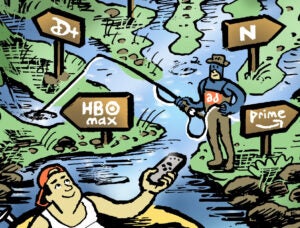TID Take Backsies
It seems Prebid wasn’t keen to die on the hill of its Transaction ID change.
In August, Prebid announced that, starting with version 10.9, it would assign unique TIDs to each SSP selling a publisher’s ad inventory. Previously, if a publisher opted to share TIDs in bid requests, Prebid would use the same universal TID across all SSPs.
Prebid’s change sparked a firestorm of hot takes on social media. And it led The Trade Desk to announce its own auction wrapper, OpenAds, that requires publishers to share universal TIDs.
Now, after being accused by The Trade Desk and others of deliberately obfuscating a signal that buyers use to avoid duplicated auctions, Prebid is backpedaling.
Beginning with a future Prebid update, publishers will have control over whether to share universal TIDs for all sellers or use unique TIDs for each seller. Prebid board member Garrett McGrath announced this latest shift in a blog post published last week.
McGrath also attempted to put the original TID pivot in context by noting that just 1% of Prebid traffic had updated to version 10.9, which included the controversial update.
After all that fuss over a change that most publishers hadn’t even implemented yet, looks like we’re pretty much back to square one.
No More Worlds To Concur
Streaming media usually comes with great audience data and targeting capabilities compared to linear TV – but one thing that’s lost for streamers is the effect of what’s known as concurrency.
Total reach remains the go-to metric for TV and streaming buyers of all stripes, as The New York Times reports. But even with YouTube’s and Netflix’s vast reach, advertisers aren’t getting in front of masses of people with the same ad all at the same time.
Live events bring “urgent viewing” and have “a hugely outsize impact,” Netflix Co-CEO Ted Sarandos said last week during his company’s quarterly earnings report.
Streamers are investing heavily in live sports and other live events right now to capture the immediacy and shared audience experience that advertisers value.
And now, data is turning live sports and events into even bigger opportunities.
For example, in the past, broadcasters dreaded when a big game went into overtime – like Monday night’s marathon World Series game – because they couldn’t easily capitalize on the surge in attention. They’d fill the extra time with leftover sponsors or local ads, cutting into regular programming.
Now, those could be highly monetizable moments.
Clip Me Baby One More Time
Speaking of monetizable moments, there’s only one thing more monetizable than short-form content: even shorter-form content.
At least, that’s the idea behind Clipping, a new startup that identifies viral moments in celebrity videos, adds a funny slogan or catchphrase to it and plasters the video across social media.
These videos are, in fact, paid ads – although you might not know it at a glance. They appear in social media feeds and “look like they could be from any random superfan,” as Bloomberg puts it.
Clipping’s clients receive between $300 and $1,500 for every million views of a clip in exchange for a monthly subscription fee of $2,500 to upwards of $10,000.
Some might say that’s a hefty fee for repurposing already-existing content, but Clipping’s 23-year-old founder, Anthony Fujiwara, has spent years studying strategies on how to go viral – citing inspiration from right-wing influencer Andrew Tate. (Oy.)
“If you want to go viral,” Fujiwara tells Bloomberg, “you have to go through me.”
But Wait! There’s More!
Big-name brands are starting to take dupe enforcement seriously. [Adweek]
Even the companies that want to spend money on X are struggling. [Digiday]
The state of Texas is suing Kenvue on the grounds that Tylenol’s marketing allegedly omitted a (currently unproven) link between autism and the prenatal use of acetaminophen. [The Wall Street Journal]
PayPal and OpenAI announced a new partnership that allows users to pay for shopping directly in ChatGPT. [TechCrunch]
Netflix and Amazon Prime are using AI algorithms that hide content from some users, according to a media executive. [Fortune]
Advertisers are boosting ad spend on Reddit and exploring organic ways to increase brand engagement on the platform because it’s become such an important reference for AI search engines. [Adweek]
Here’s a new one: Generative AI software is being used to create fake receipts for fraudulent expense reports. [Ars Technica]
Starting next October, Google Chrome will ask for user permission to access any site that uses “http” instead of “https.” [blog]
You’re Hired!
The Trade Desk’s longtime sales leader, Jed Dederick, will leave the company at the end of the year. His replacement as CRO will be Anders Mortensen, who previously led Google’s US agency sales business. [release]
Digital agency The Shipyard brings on Stephani Estes as chief media officer. [MediaPost]
Here’s today’s AdExchanger.com news round-up… Want it by email? Sign up here.













